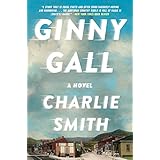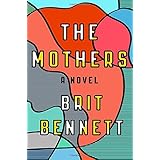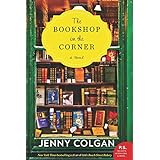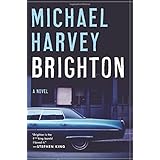 6. I'm so grateful that Jacqueline Woodson is writing for adults now. This gorgeous novel slows like a poem, the prose is so lyrical that you want to read the book aloud. In 1970's Brooklyn August and her girlfriends try to navigate the trials of friendship and the dangers of the street. Some will leave and some will stay.
6. I'm so grateful that Jacqueline Woodson is writing for adults now. This gorgeous novel slows like a poem, the prose is so lyrical that you want to read the book aloud. In 1970's Brooklyn August and her girlfriends try to navigate the trials of friendship and the dangers of the street. Some will leave and some will stay. 7.
 Louise Erdrich is known for fiction that addresses her Ojibwe background and the cultural and legal ramifications of a people living in two worlds. A hunting accident tears a family apart in this exquisite novel of unimaginable loss and grief. Only the beautiful little boy, LaRose, intuits that he may be the conduit through which two broken families can heal. http://bit.ly/1sZOdoB
Louise Erdrich is known for fiction that addresses her Ojibwe background and the cultural and legal ramifications of a people living in two worlds. A hunting accident tears a family apart in this exquisite novel of unimaginable loss and grief. Only the beautiful little boy, LaRose, intuits that he may be the conduit through which two broken families can heal. http://bit.ly/1sZOdoB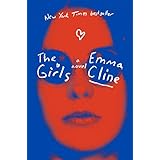 8. Debut novelist Emma Cline examined the truly terrifying nature of evil in this book that takes readers back to L.A. in the '60's and reimagines the Charles Manson case. Lonely, footloose teenager Evie Boyd is a remarkable fictional character. There isn't a false note in Cline's description of the inner workings of her mind as she sets herself up for seduction.
8. Debut novelist Emma Cline examined the truly terrifying nature of evil in this book that takes readers back to L.A. in the '60's and reimagines the Charles Manson case. Lonely, footloose teenager Evie Boyd is a remarkable fictional character. There isn't a false note in Cline's description of the inner workings of her mind as she sets herself up for seduction.
Two simply marvelous memoirs make my list and others get honorable mention.
9. I feel certain that I will never forget Paul Kalanithi or his wife Lucy. The power couple, both distinguished doctors with the whole world ahead of them, are floored by Paul's cancer diagnosis. With all the tools at their disposal they assume that a cure is just one more treatment away, until it isn't. Paul's book, written for his unborn daughter, is and awesome gift of grace. His lesson on how to die is more powerful than any book you could ever read on how to live.
 10. I said in my review of Betsy Lerner's memoir that his would be the ideal Mother's Day gift. That was a year ago and I stand by my statement. Lerner takes readers through her lifelong attempt to understand her mother, Roz, a woman who, like Betsy herself, suffered severe depression, yet soldiered on as she was raised to do. By embracing the ladies with whom her mom plays bridge, (they met every Monday for over fifty years), Betsy reaches a catharsis, a new respect and love for her mother, and learned to play cards too!
10. I said in my review of Betsy Lerner's memoir that his would be the ideal Mother's Day gift. That was a year ago and I stand by my statement. Lerner takes readers through her lifelong attempt to understand her mother, Roz, a woman who, like Betsy herself, suffered severe depression, yet soldiered on as she was raised to do. By embracing the ladies with whom her mom plays bridge, (they met every Monday for over fifty years), Betsy reaches a catharsis, a new respect and love for her mother, and learned to play cards too!
I devoured Gloria Steinem's "On the Road," and soared with hope for my dotage after sharing time with Diana Athill's roaring "Alive, Alive, Oh!" How many people place an explanation point at the end of their title?
And of course there's the fiction that I didn't even get to this year, so many advanced readers' copies that I haven't even opened yet. Jonathan Safran Foer, I'm talking to you!
A new year and a new booklist are forthcoming and I'll try to keep you entertained and informed as we forge ahead into the great unknown. If it's Florida books you want to hear about, there are two years' worth of podcasts at WGCU radio:
Happy reading to all and to all a goodnight.



